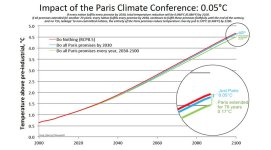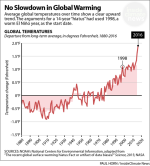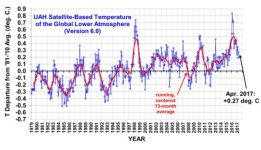Buzzer
Languidly Clinical
- Oct 1, 2006
- 26,121
I used to be a big believer in Global Warming, but I am not convinced of the impact by man. I read a lot on WattsUpWithThat, but it is a skeptical site, but some of the posters are very knowledgeable about a huge range of subjects. What I like is that they will engage in debate and not ban posters/delete comments which are pro global warming,
I'm not saying the the climate didn't warm through the 80's/90's, but there are major natural cycles (AMO PDO, Solar Cycles) etc. yet these are totally excluded. The models consistently overestimate warming.
I know I'm going to get slated, but I am not convinced. Oh, and maybe do a little research on where this mythical 97% stat comes from.
Some questions I have:
If the increase in CO2 is purely down to man, then as the bulk of emissions have come in the last 20-30 years, why is the rate of increase in the atmosphere not increasing?
If the level o CO2 is higher now than it was in the 80's, why was there a hiatus for 18 years (based on satellite figures and not land based thermometers). The hiatus was only broken by the recent El-Nino.
No doubt I'll be called all sorts names now lol
Yeah. I thought it was definitely a proven thing, I still think that it's real (that's a gut feel rather than based on any evidence that I've read) but I get increasingly frustrated when Climate Change champions say that it is settled science but then obfuscate on the details or play the man rather than the ball. Bill Nye is a classic example of someone who does this and often.




